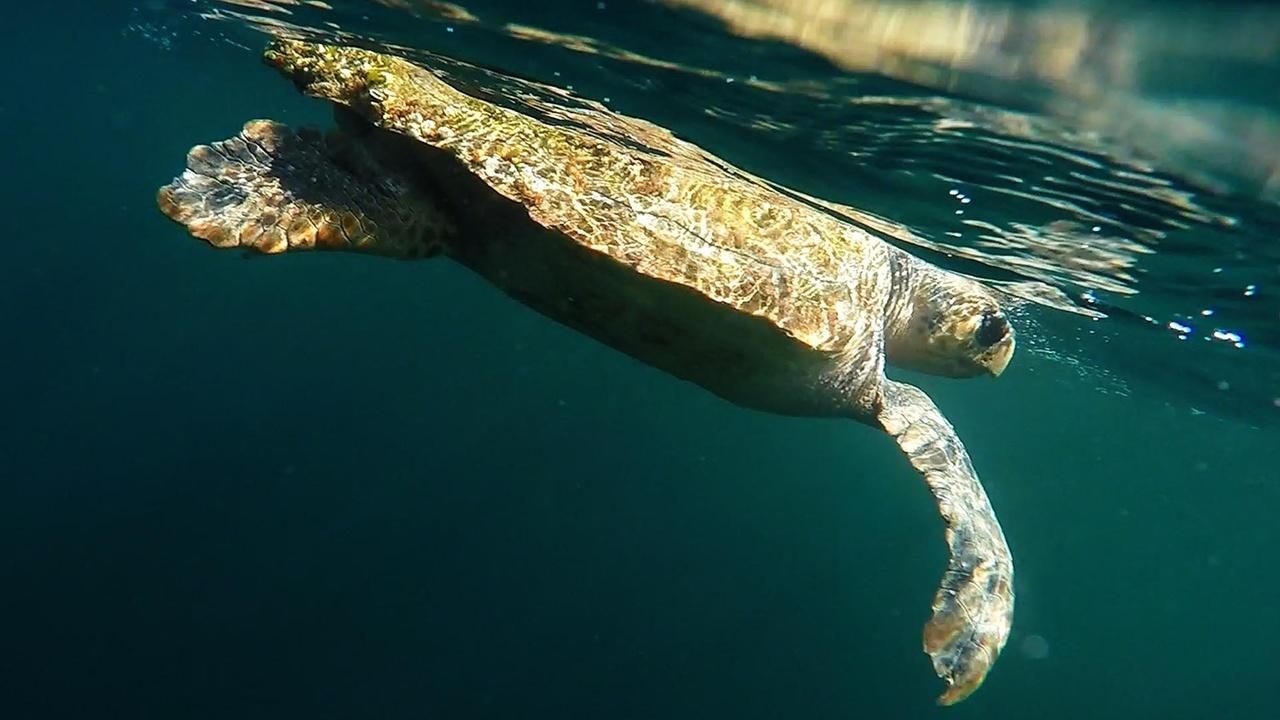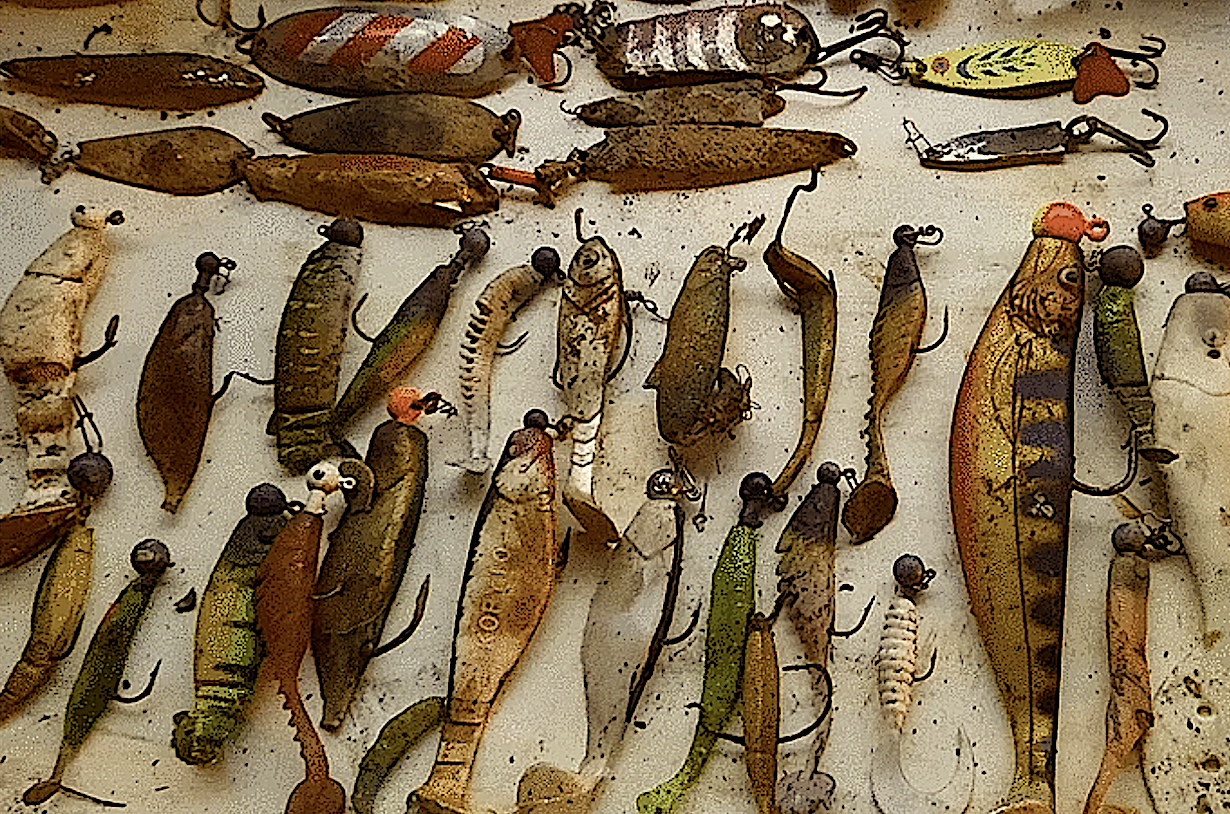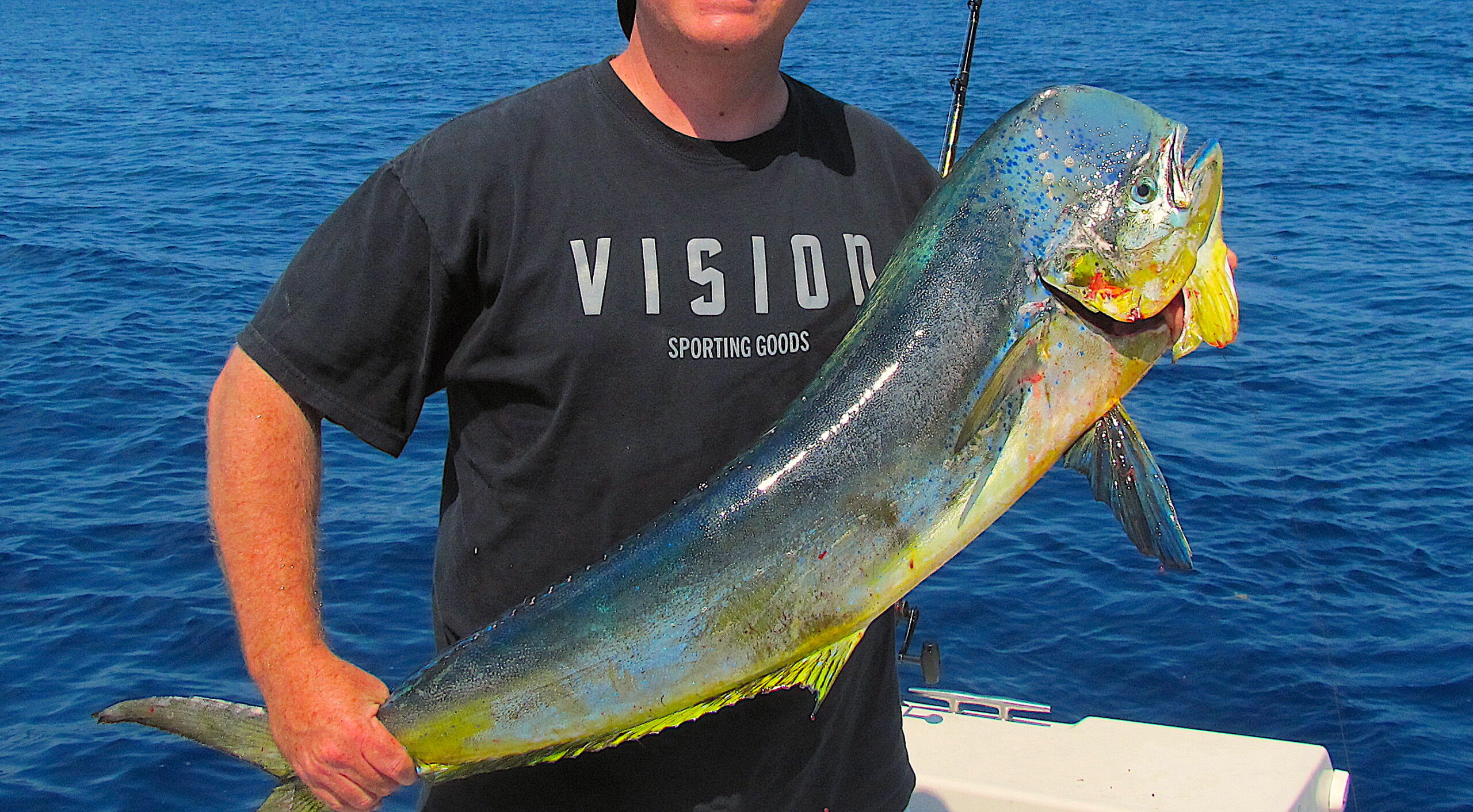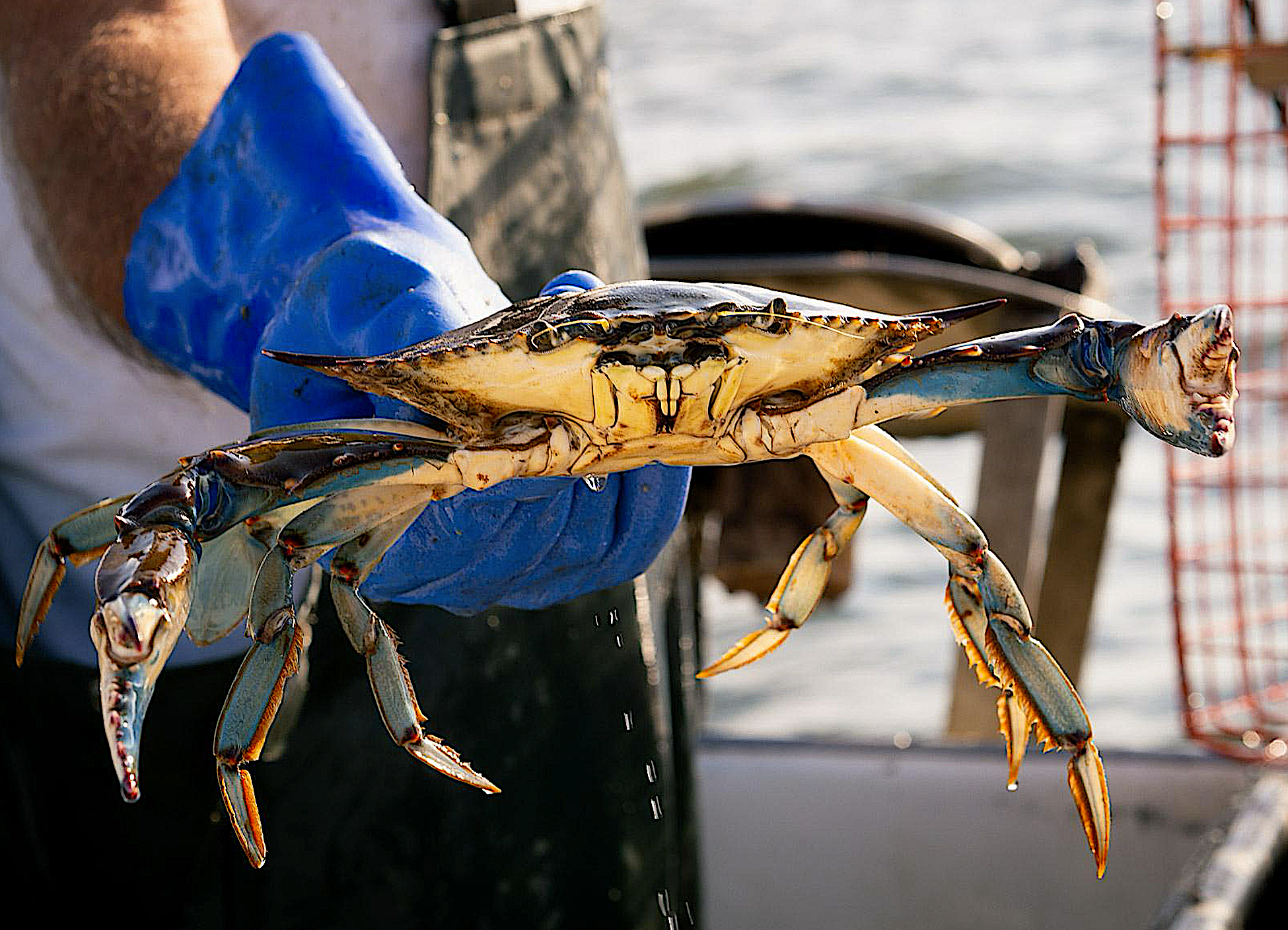How Do Loggerhead Sea Turtles React to Hurricanes?

Not only do they dive longer and change locations, but their new behaviors linger after the storm has passed.
In a previous blog post, we summarized research that examined whether hurricanes affect fish in deep water. Scientists had discovered tropical systems can cause gray triggerfish to evacuate. With the peak of North Carolina’s hurricane season upon us and the coast’s sea turtle nesting period just finishing up, here’s some research that focuses on sea turtle behaviors during an Atlantic hurricane.
Research Need
Hurricanes wreak havoc on coastal marine ecosystems. They destroy coral reefs, mix up the water column, redistribute bottom sediments, and increase pollution through stormwater runoff.
Although we know hurricanes also can cause fish to leave nearshore estuaries and coastal ocean environments for deeper water, we have few examples of sea turtle behaviors during large storm events.
All loggerhead sea turtle populations are among the endangered or threatened species protected under the Endangered Species Act, and while interactions with fisheries are the biggest threat to loggerheads, degradation of nesting habitats and changes in the environment also affect these populations.
What did they study?
NOAA Fisheries scientists and partners placed satellite tags on 26 loggerhead sea turtles from southern Massachusetts to Cape Hatteras. As Hurricane Irene moved through the region two months later, the research team could examine whether the satellite-tagged turtles changed their dive behaviors and patterns of movement. The tags also recorded oceanographic conditions.
What did they find?
Of the 26 turtles, 18 were in the eye of Hurricane Irene. During the storm, all but three of the turtles moved northward, presumably travelling with the surface currents to conserve energy. The few turtles that remained in their foraging area during the storm dove for longer durations — sometimes over an hour, or more than twice the loggerheads’ typical dives, which usually lasted 30 minutes or less.
After the storm, all the turtles that had moved north during the hurricane moved back south. Ten stopped at the foraging area they had occupied before the storm, while the others kept on going — one nearly 84 miles. Southward migration is normal for loggerhead sea turtles, but the timing here was much earlier than normal seasonal movement.
At least two weeks after Irene, the loggerheads’ diving times still hadn’t returned to pre-storm durations.
So what?
We don’t know precisely why the loggerhead turtles reacted to the hurricane as they did. Was it the sound from increased winds, shifts in barometric pressure, altered currents, other factors, or some combination of variables?
However, this research clearly did demonstrate that sea turtle movements from location to location and their dive behaviors both change during an extreme weather event. As the East Coast experiences a rising intensity in ecosystem disturbances, including hurricanes, effective management will become more difficult if and when animals become displaced.
Reading
Crowe, L.M., Hatch, J.M., Patel, S.H., Smolowitz, R.J., and H.L. Haas. 2020. “Riders on the storm: loggerhead sea turtles detect and respond to a major hurricane in the Northwest Atlantic Ocean” in Movement Ecology. 8:32.
Funding from the Sea Scallop Research Set Aside program (NA11NMF4540024) and a U.S. Department of Interior, Bureau of Ocean Energy Management Inter-Agency Agreement (M10PG00075) supported sea turtle satellite tagging.
Summary compiled by Sara Mirabilio
Lead photo courtesy of NOAA
The text from Hook, Line & Science is available to reprint and republish, but only in its entirety and with this attribution: Hook, Line & Science, courtesy of Scott Baker and Sara Mirabilio, North Carolina Sea Grant. HookLineScience.com
- Categories:



